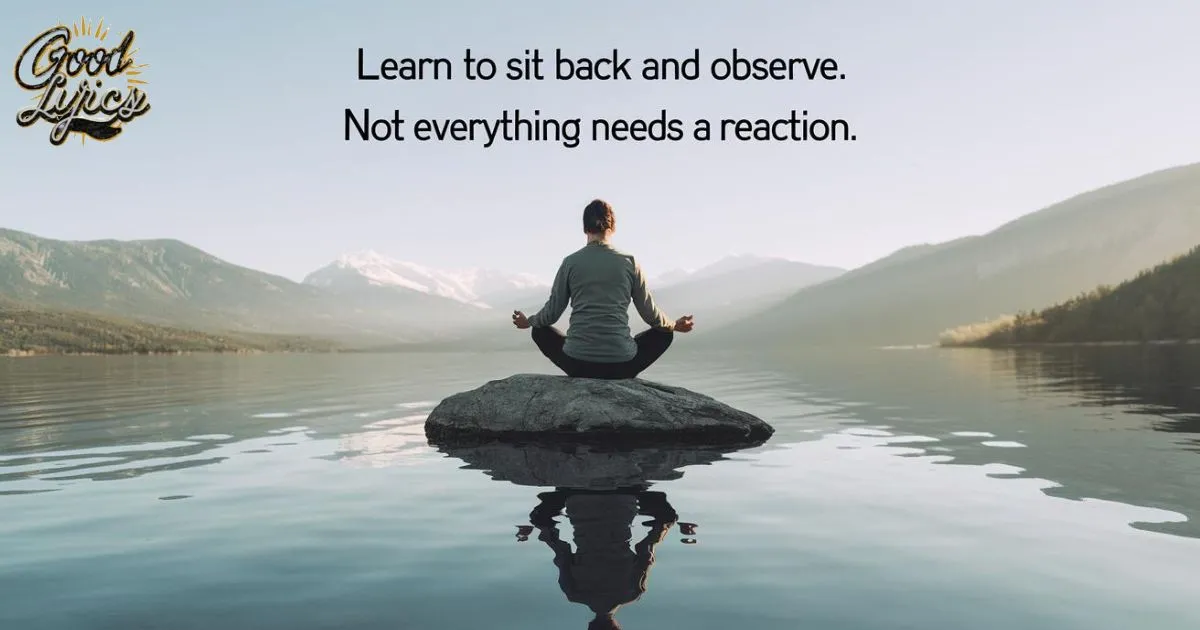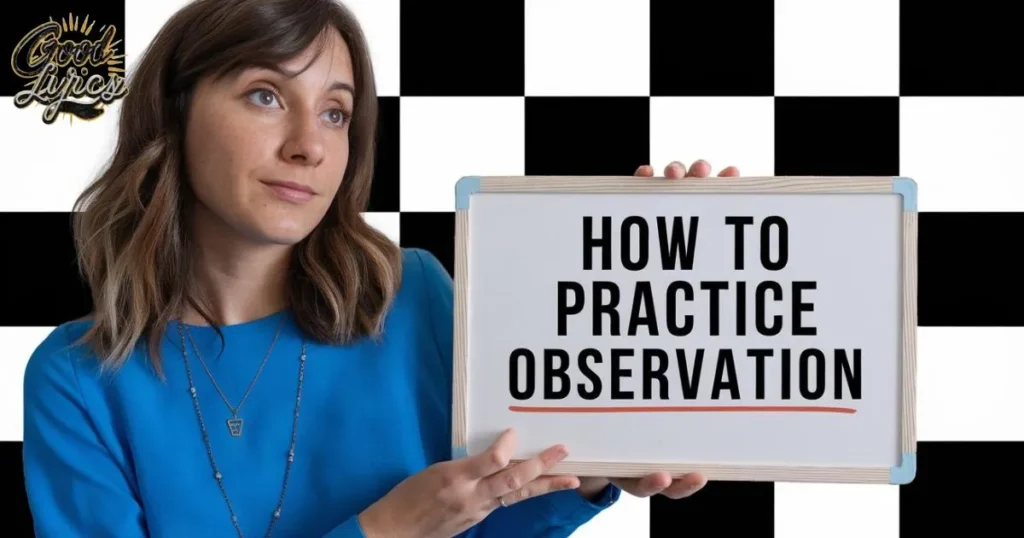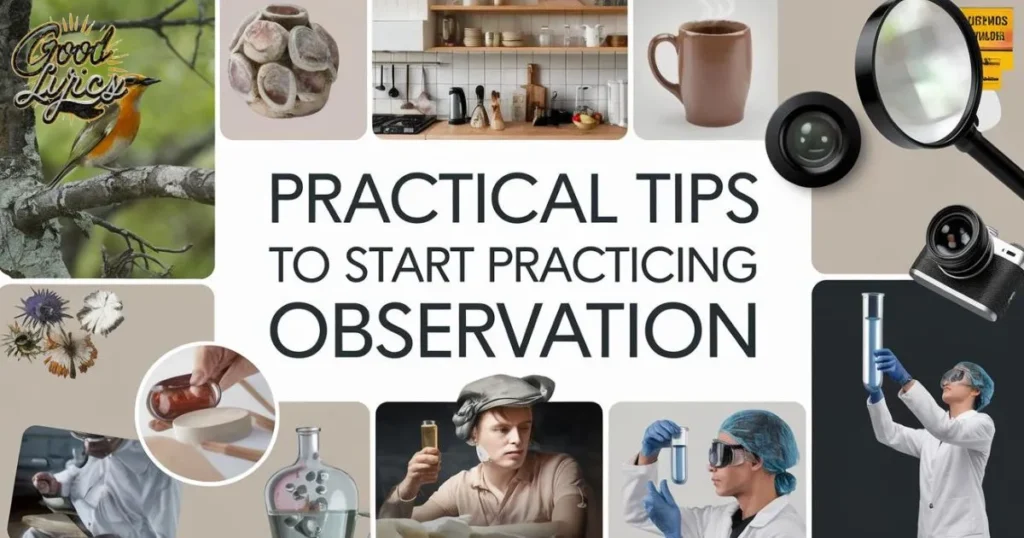
In a world where information is relentless, decisions need to be made in a flash, and stress seems to be an ever-present companion, there’s a simple yet profound wisdom in the phrase: “Learn to sit back and observe. Not everything needs a reaction.”
Mastering the ability to take a step back and allow situations to unfold before making a judgment or taking action can dramatically improve our mental state, decision-making, and even our relationships.
The Concept of Observation
Observation is much more than just looking at something; it’s about understanding and experiencing life as it happens, without feeling the need to interfere. It allows you to consciously acknowledge situations around you and gives you the space to process emotions and events more thoughtfully.
The Benefits of Learning to Observe
- Reduced Stress and Anxiety: Observing instead of immediately reacting can help prevent unnecessary emotional turmoil. By not jumping to conclusions or hastily responding, you can maintain a calm and peaceful state of mind.
- Better Decision-Making: When you allow yourself time to observe, you collect more information. This leads to making well-informed and carefully considered choices rather than impulsive ones that you might regret later.
- Enhanced Awareness: Practicing observation heightens your understanding of your environment, relationships, and even your thoughts and feelings. This self-awareness becomes a powerful tool for navigating life’s complexities.
Observation Over Reaction
In our fast-paced society, there is often a pressure to respond quickly to every stimulus be it a social media notification, a work email, or an argument with a loved one.
You may want to Read: Blooket Join: Fun and Educational Platform
However, reacting impulsively can often lead to misunderstandings, mistakes, and conflicts. Observation encourages a pause, giving you the chance to assess whether a reaction is truly necessary.
Why Not Everything Needs a Reaction
Sometimes, the best course of action is to do nothing at all. Here are some reasons why not everything needs a reaction:
- Emotional Intelligence and Control: Emotional intelligence involves recognizing and managing your own emotions while being sensitive to others. By observing, you give yourself space to understand and process your emotions, reducing the chances of saying or doing something regrettable.
- Avoiding Over-Involvement: Not every situation requires your intervention. Picking your battles and focusing on what truly matters conserves your energy and protects your mental well-being.
You may want to Read: Wants and Needs Lyrics – Drake ft. Lil Baby
- Understanding the Bigger Picture: A broader perspective comes naturally when you observe first. Rushing into action without considering the full context often leads to skewed perceptions and suboptimal outcomes.
How to Practice Observation

Cultivating the habit of observation is an intentional practice, but once you start, it becomes a transformative skill. Here are some practical ways to start:
Mindfulness Techniques
- Meditation Practices: Regular meditation can sharpen your ability to observe without judgment. Start with just a few minutes each day, focusing on your breath and becoming aware of the present moment.
- Breathing Exercises: Practicing deep breathing can help ground you in the present. This simple act of focusing on your breath makes it easier to become aware of your thoughts and surroundings without feeling overwhelmed.
Active Listening
Active listening involves fully engaging with the person speaking to you maintaining eye contact, nodding, and asking clarifying questions. This improves your ability to observe and better understand others, enhancing your relationships and decision-making.
Cultivating Patience and Reflection
- Building Patience: Patience is an essential element of effective observation. When you allow situations to unfold naturally, rather than trying to control every outcome, you often find more clarity and insight.
- Reflection Practices: Taking time to reflect on your actions, thoughts, and emotions helps you gain deeper insights and self-awareness. This enables you to learn from your experiences and make better decisions in the future.
The Role of Observation in Personal and Professional Settings
Observation plays a vital role across different aspects of life:
Enhancing Workplace Relationships
In the workplace, observation allows you to understand the dynamics of your team, pick up on non-verbal cues, and identify potential challenges before they become significant issues.
You may want to Read: Fran Candelera: Pioneering Art, Tech, and Education Innovation
For managers, observing their employees can provide valuable insights into performance and morale, leading to better management practices and a more cohesive team.
Improving Personal Relationships
In personal relationships, observing without jumping to conclusions helps in understanding loved ones better. It fosters empathy and reduces the chances of conflict, leading to deeper and more meaningful connections.
Success Stories: Observation in Action
- Business Leaders: Many successful leaders attribute their success to keen observation skills. For example, Steve Jobs was known for his ability to notice trends, understand consumer needs, and observe market dynamics all of which contributed to Apple’s success.
- Personal Growth Stories: People who practice regular observation often report increased self-awareness and emotional intelligence. By understanding their thoughts and behavior patterns, they navigate life more effectively and confidently.
Overcoming Challenges in Learning to Observe
- Dealing with Impulsiveness: In a world that demands instant responses, it can be hard to pause and observe. Practicing patience and mindfulness can help resist the urge to react immediately.
- Managing Distractions: With constant distractions like social media, emails, and multitasking, staying present is a challenge. To overcome this, create a calm environment free from unnecessary interruptions and use mindfulness to bring yourself back to the moment.
Practical Tips to Start Practicing Observation

- Start Small: Take just a few minutes each day to sit quietly and observe your surroundings. Notice the colors, sounds, and sensations without judgment.
- Practice Mindfulness in Everyday Activities: Whether you’re walking, eating, or washing dishes, try to be fully present. Pay attention to the sights, sounds, and feelings associated with each action.
- Engage in Active Listening: During conversations, focus on understanding the other person rather than formulating a response. This helps deepen your relationships and improves your observational skills.
You may want to Read: 5 Benefits of Using a Term Insurance Calculator
Conclusion
Learning to sit back and observe is a life-changing skill that can help you reduce stress, make better decisions, and improve your relationships. By practicing mindfulness, developing patience, and embracing active listening, you can cultivate observation as a natural part of your life.
In doing so, you’ll find that many situations that once seemed urgent become manageable, and you’ll respond to life’s challenges with greater wisdom and clarity.
FAQs
How can observation improve my life?
Observation helps you make better decisions, reduce stress, and enhance relationships by allowing you to see situations more clearly before reacting.
What are the main challenges in becoming more observant?
Overcoming impulsiveness and distractions are common challenge. Practicing mindfulness and creating a calm environment can help improve your ability to observe.
Can observation help reduce stress?
Yes, by preventing hasty reactions and allowing thoughtful responses, observation reduces stress and helps maintain emotional balance.
How do I know if I’m overreacting?
If your response is out of proportion to the situation, you may be overreacting. Take a moment to observe and assess your feelings before responding.
What are some quick tips to start practicing observation?
Start with mindfulness practices, like meditation and breathing exercises. Practice active listening in conversations and find a peaceful space to reflect.

Stay updated with the latest news and trending topics on my blogging website. From breaking stories to in-depth analyses, I bring you the most relevant updates concisely and engagingly!


